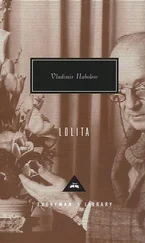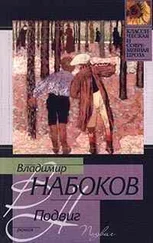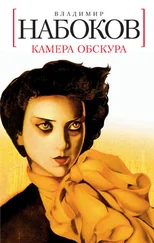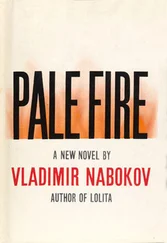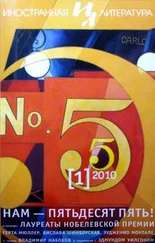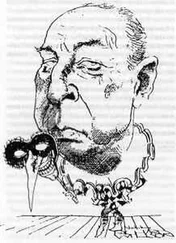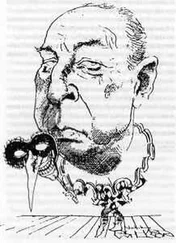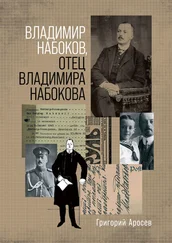Владимир Набоков - Pale Fire
Здесь есть возможность читать онлайн «Владимир Набоков - Pale Fire» весь текст электронной книги совершенно бесплатно (целиком полную версию без сокращений). В некоторых случаях можно слушать аудио, скачать через торрент в формате fb2 и присутствует краткое содержание. Жанр: Классическая проза, на английском языке. Описание произведения, (предисловие) а так же отзывы посетителей доступны на портале библиотеки ЛибКат.
- Название:Pale Fire
- Автор:
- Жанр:
- Год:неизвестен
- ISBN:нет данных
- Рейтинг книги:4 / 5. Голосов: 1
-
Избранное:Добавить в избранное
- Отзывы:
-
Ваша оценка:
- 80
- 1
- 2
- 3
- 4
- 5
Pale Fire: краткое содержание, описание и аннотация
Предлагаем к чтению аннотацию, описание, краткое содержание или предисловие (зависит от того, что написал сам автор книги «Pale Fire»). Если вы не нашли необходимую информацию о книге — напишите в комментариях, мы постараемся отыскать её.
Pale Fire — читать онлайн бесплатно полную книгу (весь текст) целиком
Ниже представлен текст книги, разбитый по страницам. Система сохранения места последней прочитанной страницы, позволяет с удобством читать онлайн бесплатно книгу «Pale Fire», без необходимости каждый раз заново искать на чём Вы остановились. Поставьте закладку, и сможете в любой момент перейти на страницу, на которой закончили чтение.
Интервал:
Закладка:
Somewhere in the mist of the city there occurred every day disgusting outbursts of violence, arrests and executions, but the great city roiled on as smoothly as ever, the cafes were full, splendid plays were being performed at the Royal Theater, and it was really the palace which contained the strongest concentrate of gloom. Stone-faced, square-shouldered komizars enforced strict discipline among the troops on duty within and without. Puritan prudence had sealed up the wine cellars and removed all the maidservants from the southern wing. The ladies in waiting had, of course, left long before, at the time the King exiled his Queen to her villa on the French Riviera. Thank heavens, she was spared those dreadful days in the polluted palace!
The door of every room was guarded. The banqueting hall had three custodians and as many as four loafed in the library whose dark recesses seemed to harbor all the shadows of treason. The bedrooms of the few remaining palace attendants had each its armed parasite, drinking forbidden rum with an old footman or taking liberties with a young page. And in the great Heralds' Hall one could always be sure of finding ribald jokers trying to squeeze into the steel panoply of its hollow knights. And what a smell of leather and goat in the spacious chambers once redolent of carnations and lilacs!
This tremendous company consisted of two main groups: ignorant, ferocious-looking but really quite harmless conscripts from Thule, and taciturn, very polite Extremists from the famous Glass Factory where the revolution had flickered first. One can now reveal (since he is safe in Paris) that this contingent included at least one heroic royalist so virtuosically disguised that he made his unsuspecting fellow guards look like mediocre imitators. Actually Odon happened to be one of the most prominent actors in Zembla and was winning applause in the Royal Theater on his off-duty nights. Through him the King kept in touch with numerous adherents, young nobles, artists, college athletes, gamblers, Black Rose Paladins, members of fencing clubs, and other men of fashion and adventure. Rumors rumbled. It was said that the captive would soon be tried by a special court; but it was also said that he would be shot while ostensibly being transported to another place of confinement. Although flight was discussed daily, the schemes of the conspirators had more aesthetic than practical value. A powerful motorboat had been prepared in a coastal cave near Blawick (Blue Cove) in western Zembla, beyond the chain of tall mountains which separated the city from the sea; the imagined reflections of the trembling transparent water on the rock wall and boat were tantalizing, but none of the schemers could suggest how the King could escape from his castle and pass safely through its fortifications.
One August day, at the beginning of his third month of luxurious captivity in the South West Tower, he was accused of using a fop's hand mirror and the sun's cooperative rays to flash signals from his lofty casement. The vastness of the view it commanded was denounced not only as conducive to treachery but as producing in the surveyor an airy sense of superiority over his low-lodged jailers. Accordingly, one evening the King's cot-and-pot were transferred to a dismal lumber room on the same side of the palace but on its first floor. Many years before, it had been the dressing room of his grandfather, Thurgus the Third. After Thurgus died (in 1900) his ornate bedroom was transformed into a kind of chapel and the adjacent chamber, shorn of its full-length multiple mirror and green silk sofa, soon degenerated into what it had now remained for half a century, an old hole of a room with a locked trunk in one corner and an obsolete sewing machine in another. It was reached from a marble-flagged gallery, running along its north side and sharply turning immediately west of it to form a vestibule in the southwest corner of the Palace. The only window gave on an inner court on the south side. This window had once been a glorious dreamway of stained glass, with a fire-bird and a dazzled huntsman, but a football had recently shattered the fabulous forest scene and now its new ordinary pane was barred from the outside. On the west-side wall, above a whitewashed closet door, hung a large photograph in a frame of black velvet. The fleeting and faint but thousands of times repeated action of the same sun that was accused of sending messages from the tower, had gradually patinated this picture which showed the romantic profile and broad bare shoulders of the forgotten actress Iris Acht, said to have been for several years, ending with her sudden death in 1888, the mistress of Thurgus. In the opposite, east-side wall a frivolous-looking door, similar in turquoise coloration to the room's only other one (opening into the gallery) but securely hasped, had once led to the old rake's bedchamber; it had now lost its crystal knob, and was flanked on the east-side wall by two banished engravings belonging to the room's period of decay. They were of the sort that is not really supposed to be looked at, pictures that exist merely as general notions of pictures to meet the humble ornamental needs of some corridor or waiting room: one was a shabby and lugubrious Fête Flammande after Teniers; the other had once hung in the nursery whose sleepy denizens had always taken it to depict foamy waves in the foreground instead of the blurry shapes of melancholy sheep that it now revealed.
The King sighed and began to undress. His camp bed and a bedtable had been placed, facing the window, in the northeast corner. East was the turquoise door; north, the door of the gallery; west, the door of the closet; south, the window. His black blazer and white trousers were taken away by his former valet's valet. The King sat down on the edge of the bed in his pajamas. The man returned with a pair of morocco bed slippers, pulled them on his master's listless feet, and was off with the discarded pumps. The King's wandering gaze stopped at the casement which was half open. One could see part of the dimly lit court where under an enclosed poplar two soldiers on a stone bench were playing lansquenet. The summer night was starless and stirless, with distant spasms of silent lightning. Around the lantern that stood on the bench a batlike moth blindly flapped - until the punter knocked it down with his cap. The King yawned, and the illumined card players shivered and dissolved in the prism of his tears. His bored glance traveled from wall to wall. The gallery door stood slightly ajar, and one could hear the steps of the guard coming and going. Above the closet, Iris Acht squared her shoulders and looked away. A cricket cricked. The bedside light was just strong enough to put a bright gleam on the gilt key in the lock of the closet door. And all at once that spark on that key caused a wonderful conflagration to spread in the prisoner's mind.
We shall now go back from mid-August 1958 to a certain afternoon in May three decades earlier when he was a dark strong lad of thirteen with a silver ring on the forefinger of his sun-tanned hand. Queen Blenda, his mother, had recently left for Vienna and Rome. He had several dear playmates but none could compete with Oleg, Duke of Rahl. In those days growing boys of high-born families wore on festive occasions--of which we had so many during our long northern spring--sleeveless jerseys, white anklesocks with black buckle shoes, and very tight, very short shorts called hotinguens. I wish I could provide the reader with cut-out figures and parts of attire as given in paper-doll charts for children armed with scissors. It would brighten a little these dark evenings that are destroying my brain. Both lads were handsome, long-legged specimens of Varangian boyhood. At twelve, Oleg was the best center forward at the Ducal School. When stripped and shiny in the mist of the bath house, his bold virilia contrasted harshly with his girlish grace. He was a regular faunlet. On that particular afternoon a copious shower lacquered the spring foliage of the palace garden, and oh, how the Persian lilacs in riotous bloom tumbled and tossed behind the green-streaming, amethyst-blotched windowpanes! One would have to play indoors. Oleg was late. Would he come at all?
Читать дальшеИнтервал:
Закладка:
Похожие книги на «Pale Fire»
Представляем Вашему вниманию похожие книги на «Pale Fire» списком для выбора. Мы отобрали схожую по названию и смыслу литературу в надежде предоставить читателям больше вариантов отыскать новые, интересные, ещё непрочитанные произведения.
Обсуждение, отзывы о книге «Pale Fire» и просто собственные мнения читателей. Оставьте ваши комментарии, напишите, что Вы думаете о произведении, его смысле или главных героях. Укажите что конкретно понравилось, а что нет, и почему Вы так считаете.

